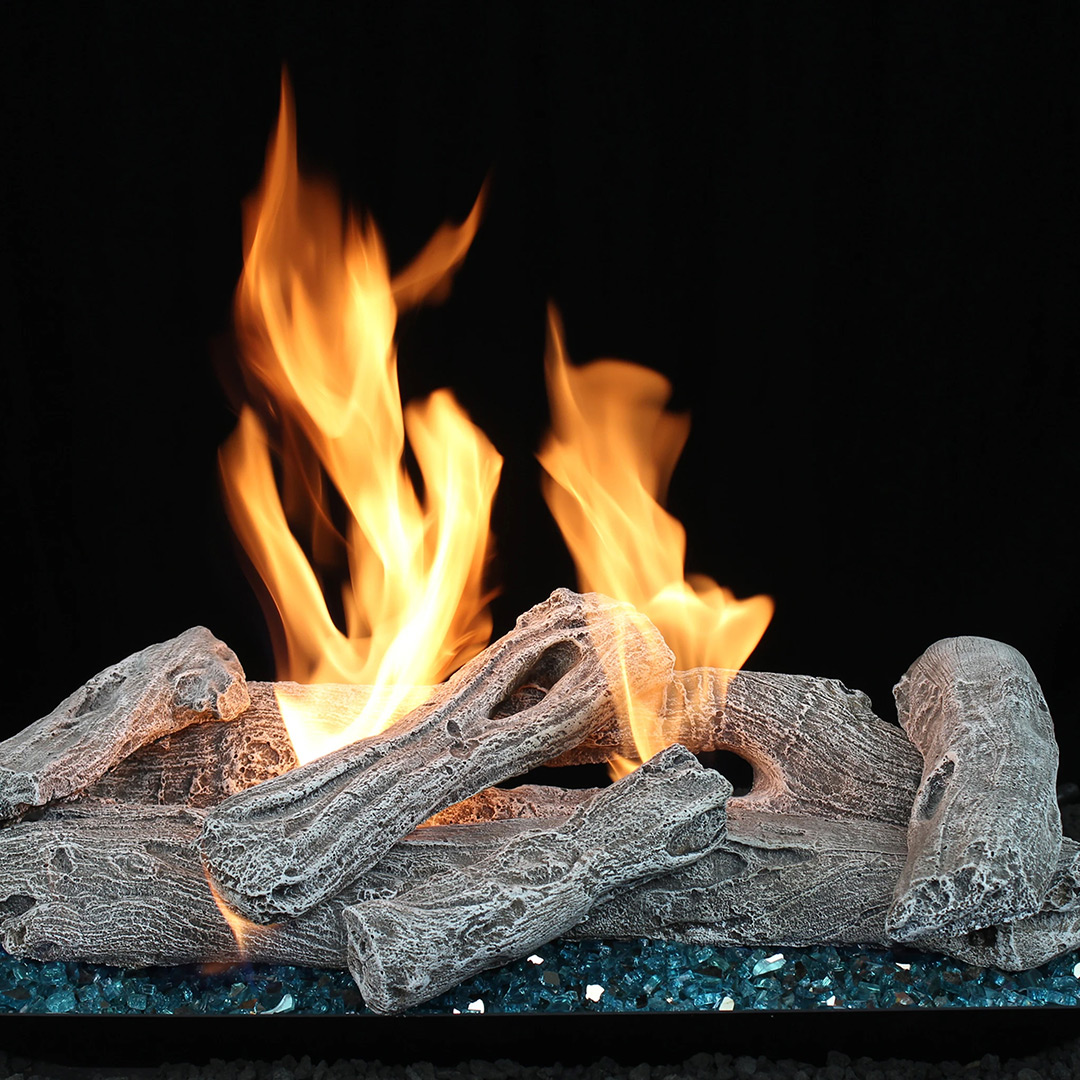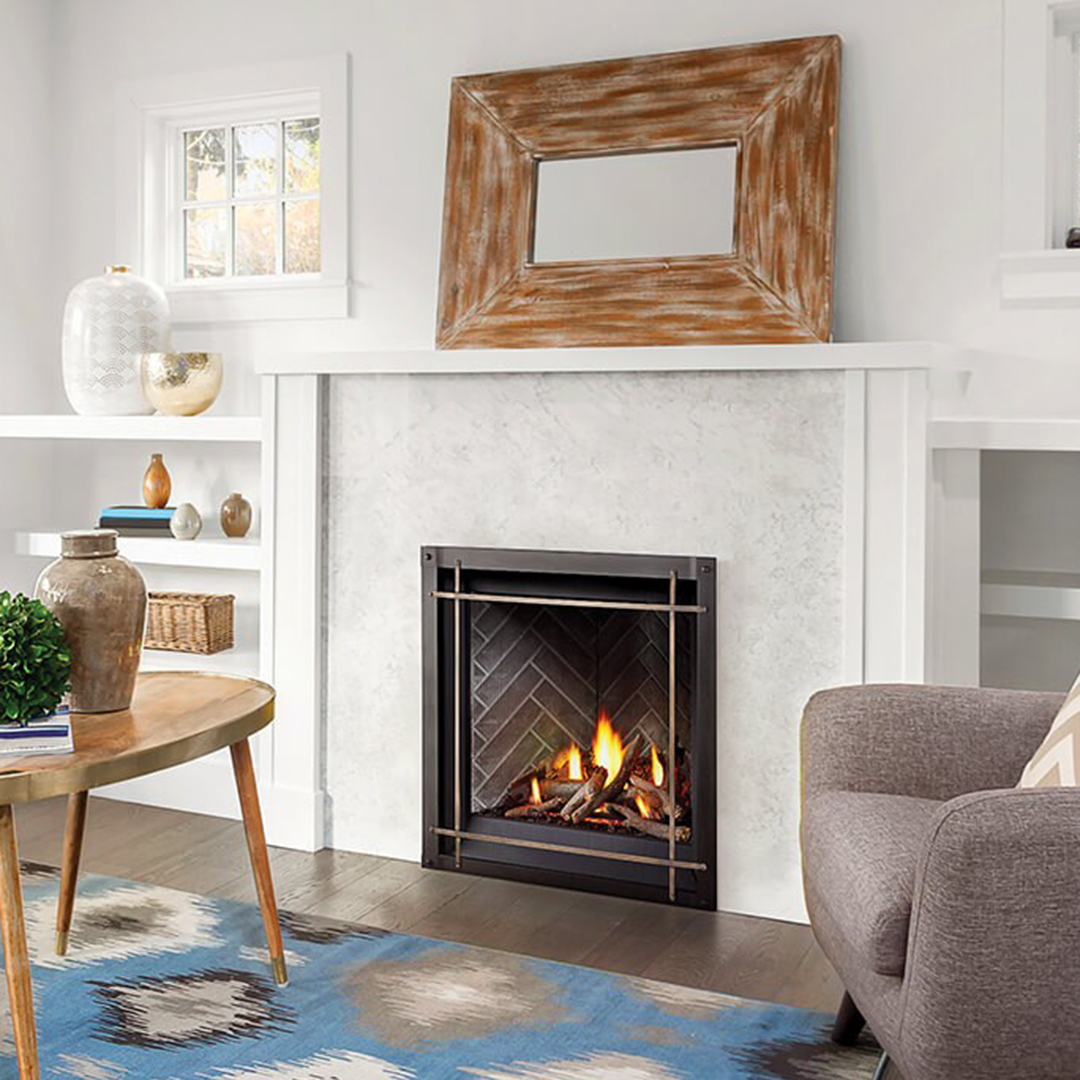Vented vs. Ventless Gas Logs
There’s no denying how much ambiance a fireplace adds to a home. And many homeowners opt for gas fireplaces over wood because they’re more efficient, safer, and require less maintenance. However, if you’re in the market for a gas log fireplace, you have two main options: vented and ventless logs.
 Both types offer a convenient, clean-burning option to traditional fireplaces but have distinct differences. Understanding these differences and the pros and cons can help you make the best decision for your home.
Both types offer a convenient, clean-burning option to traditional fireplaces but have distinct differences. Understanding these differences and the pros and cons can help you make the best decision for your home.
Vented Gas Fireplace Logs
Vented gas logs are designed to operate in a fireplace capable of burning wood and must be used with an open chimney flue and damper. This allows the byproducts of combustion, like carbon monoxide, to vent safely outside, similar to a wood fireplace.
Pros
Realistic Appearance and Ambiance
Vented gas logs have a realistic look, mimicking the appearance of natural wood logs and burning with the classic fireplace smells and sounds.
Less Pollution
Since the combustion byproducts vent outside, there’s less chance for indoor air to become polluted.
Variety
There’s a wide range of styles and sizes available, making it easier to find a set that complements your home’s decor.
Cons
Requires an Existing, Functional Chimney
If you don’t have a chimney, installing vented gas logs can be expensive and complicated.
Less Heat Efficiency
A significant amount of heat escapes through the chimney, making vented logs a less efficient heat source and forcing people to rely more heavily on furnaces or heaters to keep them comfortable.
Routine Maintenance
Chimneys require regular inspection by certified chimney professionals to ensure they’re safe and clean.
Ventless Gas Fireplace Logs
Ventless (or unvented) gas logs are designed to run without a chimney, flue, or vent so you can install them in any room. They burn gas more efficiently than their vented counterparts, minimizing the production of toxic byproducts and allowing you to use the fireplace instead of other heating methods, saving you on utility bills.
Pros
High Efficiency
As mentioned, ventless gas logs are more energy efficient because all the heat they produce stays in the room instead of going up the chimney.
Less Expensive Installation
Because you don’t need a chimney or venting system, ventless logs are easier and cheaper to install, making them ideal for homes without a chimney.
Better Comfort
Ventless gas logs are excellent for heating a small home and, for some, can be the only heat source the homeowner needs.
Cons
Potential Air Quality Issues
While ventless gas logs burn cleaner, they still release combustion byproducts into the house, including moisture and trace amounts of carbon monoxide. If you opt for ventless logs, keeping your room well-ventilated is crucial.
Odor and Humidity
Some users say there’s a slight odor when using the ventless logs, and the combustion process increases indoor humidity.

Regulations and Restrictions
Some areas don’t allow ventless gas logs because of concerns over indoor air quality, so it’s important to check with your local codes and regulations.
Deciding between vented and ventless gas fireplace logs depends on your priorities. If you want a system that gives you as close to a wood-burning fireplace as possible and you have an existing chimney, vented logs are the right choice. However, ventless could be the better option if you value efficiency and have concerns about installation costs.
Let Felgemacher Fireplace Shop Help
If you’re stuck deciding between a vented and ventless gas log fireplace or need chimney services by certified experts, call Felgemacher Fireplace Shop. We have over 60 years of experience serving residents in Buffalo and Rochester.
We’re your one-stop shop for anything related to your fireplace or chimney. Book an appointment today by calling 716-482-1820.





